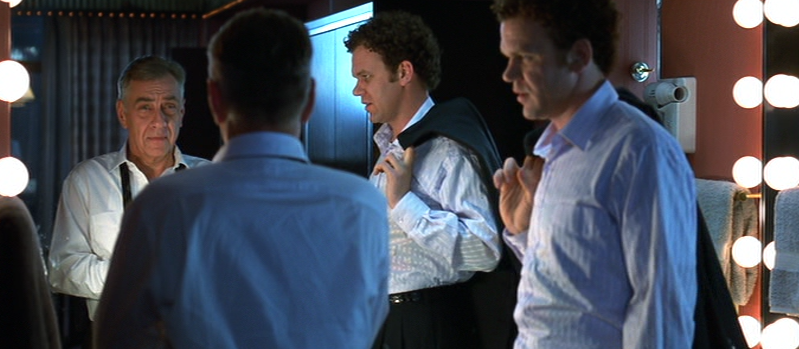
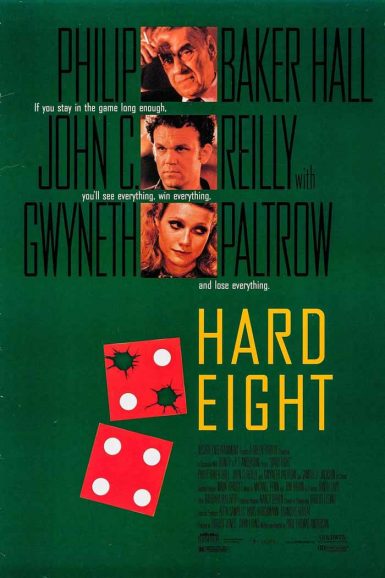
“You know the first thing they should’ve taught you at hooker school? You get the money up front!”
Paul Thomas Anderson, one of the most prominent auteurs of this century, began his career with the unassuming Hard Eight, a story about an aging gambler trying to right his wrongs. Expanding on Anderson’s short, Cigarettes & Coffee,1 the film is distinctly divided into a lolling first half and a breakneck second. Featuring Samuel L. Jackson fresh off of Pulp Fiction, and Gwyneth Paltrow coming off the success of Se7en (1995), the film was unfortunately a failure at the box office despite its critical praise. While it’s not on the level that Anderson would achieve less than a year later with Boogie Nights, it’s an early career artifact that shows a budding young director cutting his teeth.
The film begins with a snappy older gentleman named Sydney (Philip Baker Hall) approaching a disheveled younger man named John (John C. Reilly) and inviting him for coffee and a cigarette. Having never met before, Sydney pries John with questions, trying to get him to open up. He eventually does, confessing that he is distraught because he doesn’t have the $6000 he needs to pay for his mother’s funeral. Suspiciously benevolent, Sydney takes John to a casino where he shows him a scam. It is always neat when films teach you some hack or trick, pulling back the curtain like the cons in House of Games (1987). Here, Sydney walks John through the process of trading dollars for chips, and chips for dollars, in order to give the appearance that he is giving the casino thousands of dollars. Once he has been at it for some time the casino offers him free drinks, a free hotel room, and free tickets to a show.
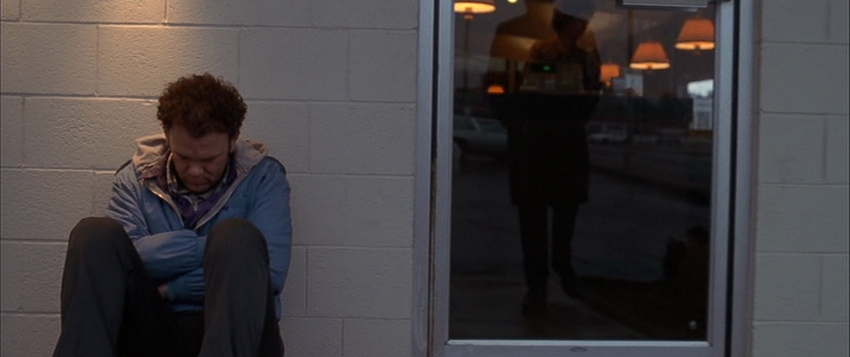
Two years later, Sydney and John have become good friends, almost like a father and son. Sydney is fond of John’s romantic interest, Clementine (Paltrow), a waitress/prostitute who can barely pay her rent; but he despises John’s friend Jimmy (Jackson), a sleazy security consultant with a foul mouth.
There are a lot of interesting individual moments in the film’s first half, such as when Sydney tells Clementine she doesn’t need to flirt with him like she does with the men at the other tables she’s waiting on, or when he takes her to his house and there is an awkward moment where she assumes that he wants to sleep with her. But mostly the first act of the film (or second, if the twenty minute prologue is considered separately) just kind of putters along as we question Sydney’s motives and the exact nature of John and Clementine’s relationship.
The film goes from idling to ripping when Sydney is awakened by a phone call from John in the middle of the night requesting his help. He arrives at a motel to discover an interesting situation—after having gotten married on a whim earlier that day, John and Clementine are holding a bloodied man hostage. Why? Because Clementine had prostituted herself and the man refused to pay. Though Sydney tries to wash his hands of the situation, his fatherly instincts toward John compel him to take care of them. In the process of cleansing the scene of evidence—as he wipes down the room for fingerprints, spins the cylinder of John’s revolver to check if it’s loaded, and pushes the gun and Clementine’s handcuffs down a sewer drain—it becomes clear that Sydney really knows how to handle himself in tense situations.
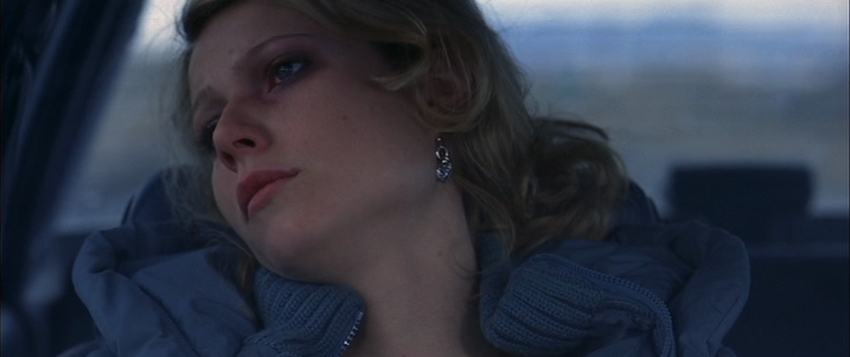
With John and Clementine on their way to Niagara Falls for their honeymoon and to lay low for a while, Jimmy takes his chance to blackmail Sydney into coughing up all of his money by confronting him about his dark past, which clues us in to Sydney’s fatherly connection to John.
The film wraps up with a little violence, but the film is not really ever about the details of the plot. With only four principal actors (Anderson regular Philip Seymour Hoffman steals his only scene as a riled up craps player), Hard Eight is anchored by character interaction, observation of human nature, and mood. The film is carried by Philip Baker Hall, who assumes the same role he had in the Cigarettes & Coffee short.2 As the old-timer, Hall instills the character with a sense of passivity, knowledge, and consideration; until the moment requires him act immediately. Though Hall would go on to become a reliable actor throughout the latter half of the 1990s and the 2000s, he had only one truly notable credit to his name, when he gave a powerhouse performance as Richard Nixon in Secret Honor (1984), a solo act directed by Robert Altman (one of Anderson’s clearest influences).
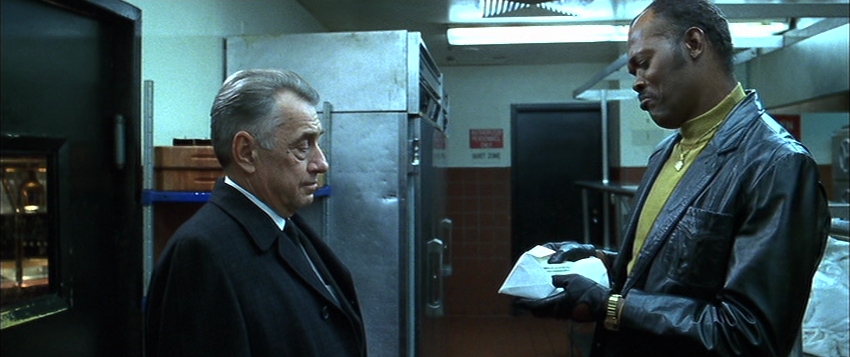
Jackson plays a character that is in a similar vein to many of his others (namely Jules from Pulp Fiction), but Paltrow’s portrayal of Clementine really shows her range as she plays a destitute woman of the night. For those who can only picture her as Pepper Potts, this will be a good reminder that she’s a solid actress. Her unglamorous role reminded me of Charlize Theron’s choice to star in Monster (2003).
Hard Eight doesn’t quite stick with the viewer in the way that some of Anderson’s other films do; Sydney is a great character but he doesn’t linger in your mind the way that Daniel Day Lewis’s characters from There Will Be Blood (2007) and Phantom Thread (2017), or Philip Seymour Hoffman’s in The Master (2012). Nevertheless, it is a solid, non-formulaic independent movie that is pretty good. We need more of those.
1. Not to be confused with Jim Jarmusch’s Coffee and Cigarettes (2003).
2. Come to think of it, why wasn’t the short included on the DVD? It’s a perfect complement to Hard Eight.